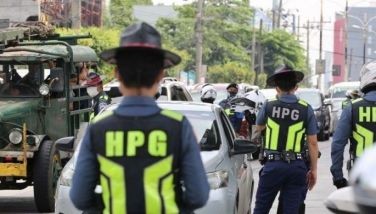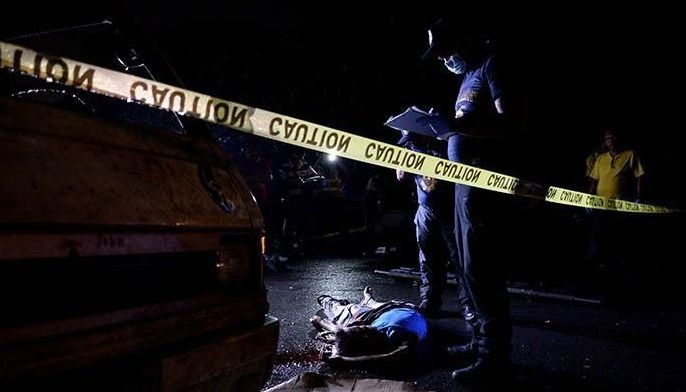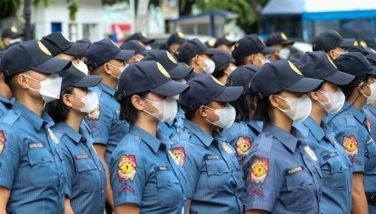#CJSearch: Gesmundo commits to continuous review of rules
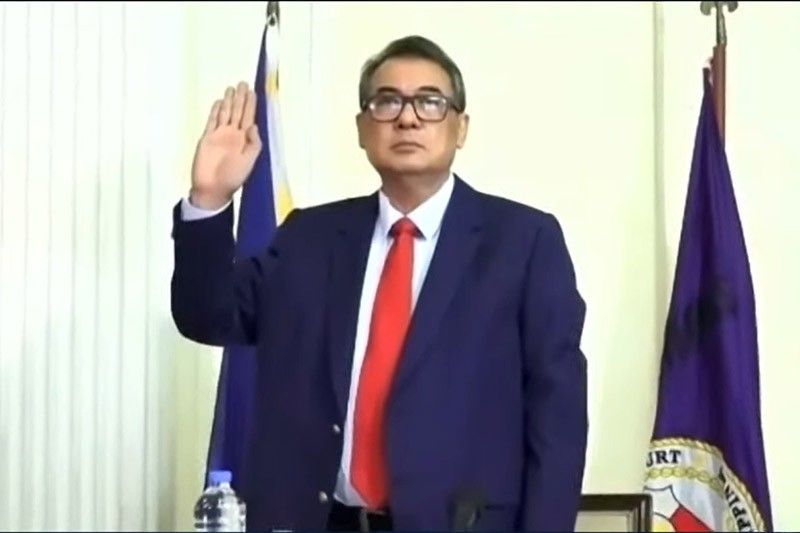
MANILA, Philippines — Associate Justice Alexander Gesmundo onFriday gave his commitment that, if appointed, he will continue programs started in the present court of Chief Justice Diosdado Peralta, in drafting and reviewing of rules.
As the Judicial and Bar Council screens candidates, Peralta noted that he has worked with Gesmundo in committees on revision of rules, including on criminal procedure. The chief justice expressed hope that the revision will be completed soon.
On Gesmundo's profile, he is listed as chairperson of the Technical Working Group for the Revision of the Law Student Practice Rule and the Organizing Committee of the 2019 Legal Education Summit. He is also a member of the SC’s Committees on Computerization and Library, on Revision of the Rules of Court and the Special Committee on Speedy Trial.
The chief justice sought Gesmundo's opinion on the proposal to amend the threshold of evidence in the filing of cases before the courts, which currently is on finding of probable cause.
Gesmundo said he believes that using prima facie (on its face) evidence in the filing of criminal action in courts can help decongest the court dockets.
Propounding a question for academic purpose, Peralta asked: Should a judge rely on affidavits or on questions propounded in finding probable cause to issue a search warrant?
Gesmundo said the judge will have to resolve an application for search warrant based on “his own searching inquiry.” He added: “He cannot solely rely on the affidavits of the complainant in the witnesses they produced, because that would be in violation of the constitution, as well as the rules on criminal procedure."
This comes as pressure mounts on the Supreme Court to look into how search warrants are supposedly “weaponized” in the arrests, and in worse cases, killings of activists. Rights groups are pressing the SC to look into placing safeguards into its earlier circular that allows Manila and Quezon City judges to issue search warrants that may be implemented across the country, “in certain instances and provided that the legal requirements are met.” No direct reference to this call however was made.
READ: SC urged to be proactive, provide safeguards vs 'templated' warrants
The implementation of such warrants have led to arrests and even killing of activists in recent years. The latest issuances from Manila courts resulted in death of nine activists and arrest of six, in what is now dubbed as “Bloody Sunday” raids in Calabarzon. Several of search warrants under this circular have been quashed by at least two courts, in Mandaluyong and Bacolod after courts found that “non-conformity with established constitutional rules and the evidence.”
Gesmundo said in resolving a motion to quash, the judge should first secure records from the other court which issued the search warrant. “What will be your basis to quash a search warrant unless you have seen the records of the proceedings in the other court? That will be a judicious way of quashing a search warrant, he must have in possession the records of the court that issued the search warrant,” he said.
In the case of political detainee Reina Mae Nasino, her lawyers asked the SC’s Judicial Integrity Board to to dismiss Manila court judge Marivic Balisi-Umali, over her “conscious indifference” on her case that resulted in the death of her three-month old baby. They said the judge upheld the validity of the search warrant without even seeing the records of application, from QC Judge Cecilyn Villavert-Burgos’ court.
Public right lawyers have earlier said they sometimes the court that issued the warrant would not allow them access to its records on the application of search warrant.
Here are the other questions asked to Gesmundo in the public interview:
On SALN: Gesmundo said he has no objections in publishing his wealth declaration documents, although he noted that there is an existing administrative issuance from the SC.
“Transparency is the rule, your honor, and I don’t think there should be any objection on that aspect,” he said, stressing that copies of SALN may be obtained by the purpose must be legitimate.
“The justices of the SC are facing certain risk in performance of their duty but if the intention of getting details of SALN is laudable and legitimate, there should be no problem,” he added.
On killings of lawyers: To address this, the Judiciary, having supervisory power over the legal profession, can talk with “the law enforcement authorities and perhaps require that they give us specifics on the extent of investigations that have been conducted as regards to killings.”
He also said a dialogue may be conducted with the Integrated Bar of the Philippines “to sit down and discuss how we can possible address these issues of killings.”
On public perception on Judiciary: If appointed, Gesmundo may serve as chief justice until 2026. How will he address the public perception that the SC are just followers of present administration?
Gesmundo acknowledged that there may be different public perception, but the SC can debunk this by “showing that the courts decide on what is proper on circumstances, decide on what is before it in terms of issues.”
Perception on corruption in Judiciary can be addressed by the Judicial Integrity Board. Since the JIB does not investigate justices, Gesmundo believes the current committee on ethics is enough to exact accountability from them.
On time period given to SC to resolve cases: Trial courts have 90 days to decide on cases, while the SC is given 24 months—which can be extended—to rule. Gesmundo pointed out: In trial courts, there are only two parties, and issues “are looked from myopic view concerning parochial interest of parties.”
But it’s different from the SC: “Decision or proceedings in SC must be viewed from myopic view of trial court to a broader canvass. The decision of the SC establishes precedents, establishes doctrines. The ripple effect of SC decision, not confined to parties before it.”
“Doctrine laid by SC is so encompassing that it practically determines outcomes of future cases and therefore it requires a lot of deliberation,” he added.
He also said he agrees in allowing lawyers to carry firearms, if they feel they are adequate to carry them.
On leadership: “Leadership is being able to show that you have the moral and ethical values, in other words, you should be the exemplar. Leadership should be able to provide direction, provide political will. A leader, a chief justice as a leader should be able to show that one he is participative but at the same time consultative.
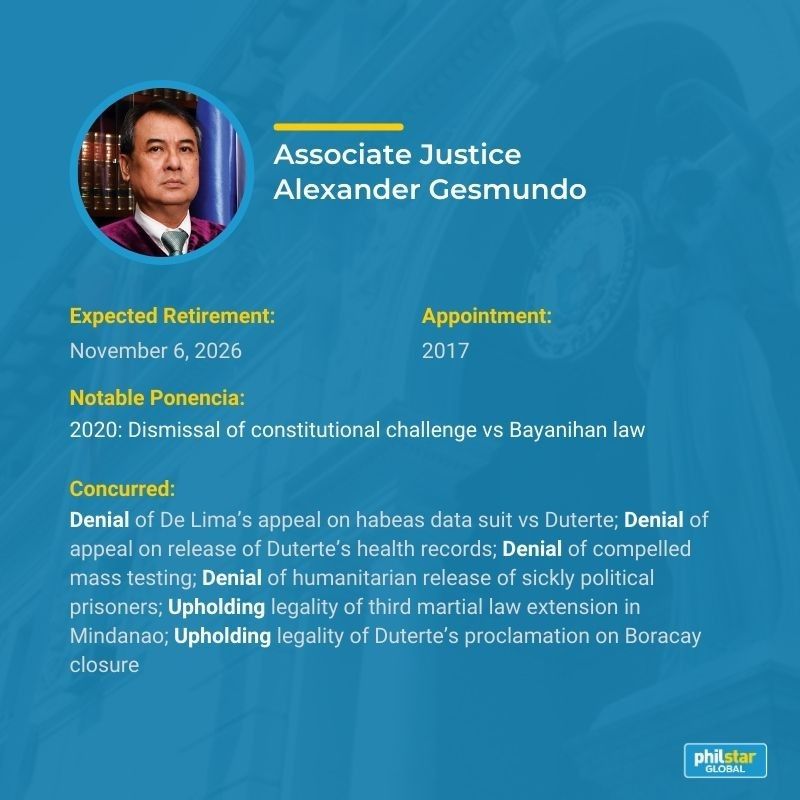
- Latest
- Trending

















